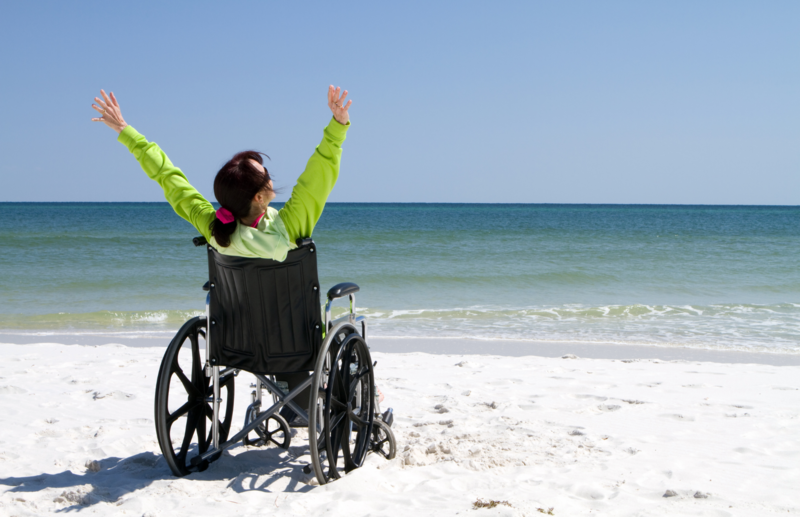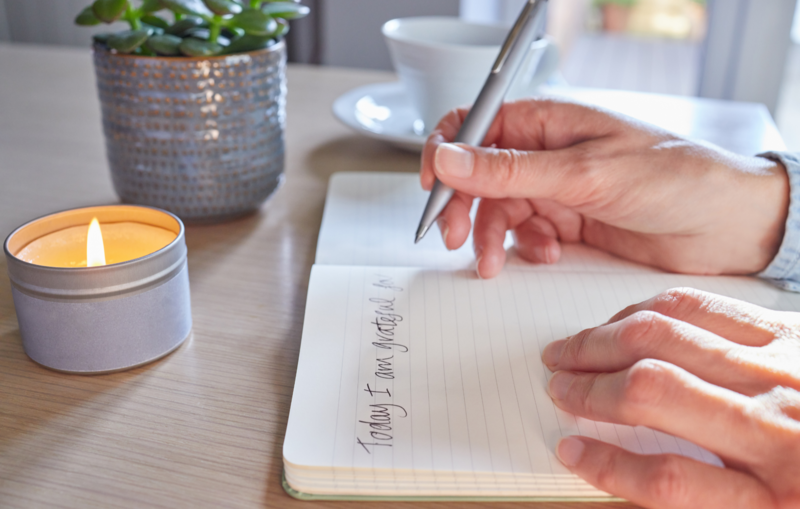'Blue' Monday
Feeling ‘blue’? You are probably not the only one. Today - 15th January 2024 - is known as ‘Blue Monday’. A term said to be coined by psychologist Dr Cliff Arnall, this is usually the third Monday in every January which, following his formula, is said to be the most depressing day of the year. And I agree.
If you think about it, January can be something of a rude awakening after the Christmas holiday. This is the time when the resolutions you make each new year tend to fail most, there is the ongoing bad weather that just seems to be endless, debt from Christmas may have piled up, and many experience a dip in levels of motivation. Summer and its sunshine tend to seem a long way off.
As a disabled individual, this is the time of year I struggle perhaps the most. I work freelance hours, yet everyone else seems to be away. I also struggle significantly with anxiety, an unwelcome companion as a result of Long Covid health issues.
I’m not usually one for following trends - but this year, I would like to begin one of my own - and it starts with tackling Blue Monday. We all know the cliched maxim that life is short and to make the most of it. We can do that in very simple ways, starting with small steps. Here are a few ideas to get you going.
Start With a Trip - Or Start Planning a Trip
Around this time last year, I took off to the Netherlands. It had been a long time since I last visited and everyone I knew was away. If you can’t beat them, join them! Even if it is just a day trip, take you time to consider the planning stages and mull it over, so you really enjoy the prospect of something to look forward to. Our access guides can help you with a range of trips and ideas – from a break away to a day out at an aquarium.

Self-Care Is Vital
Ever since I became a Long Covid patient, this is something I am passionate about. All the little rituals that make us feel more human are so important. I don’t mean the ‘get up at 5:00am for yoga, drink a green tea’ kind of self-care. Think of the tiny acts you do for yourself and stick to them like glue. Every Sunday I sit with my planner open to set up the coming week, with a can of ice-cold coke and a new nail colour ready to paint my nails. I feel like I can take on the world with my new pink claws! Think about the little things that make you smile and incorporate these tiny details into your days.
Feel The Ground Beneath Your Feet and Go Outside
Katherine May wrote an amazing guide in her newsletter about how to stay grounded in times of stress - and her first piece of advice is to go outside and feel the ground beneath your feet. Even if it is to just outside your front door for 5 minutes, take the time to sit and be content.
Make Time to Talk
We often hear platitudes about ‘it’s okay not to be okay’ - but I am a resident skeptic of that notion. I have been treated for Anxiety and Depression as a result of having to deal with Long Covid. It disables me and I was so utterly and profoundly lonely. That feeling was amplified as some individuals viewed me as having ‘changed’ - that the person I once was, was no longer with them. Instead of using unhelpful language, how about we follow through with actions? Text that friend you have not heard from in a while, call your relatives, knock on the door of your unusually quiet neighbour - and actually make the time to talk.
Think of the Hydration Station
The internet often talks about ‘hydration stations’, and this idea mirrors the wisest advice I was ever given, by my Dutch pen pal of almost a decade. If ever there is a problem in the immediate vicinity, perhaps in your workplace, that is not an emergency - stop, take a breath, then have a drink - the colder, the better. Drink slowly, step away from the task at hand and allow yourself to recover. The ‘station’ element of internet parlance suggests you always have a drink available nearby. This is a good way to ensure you stay hydrated and always have a levelled-out mood.
Journal It Out
Grab a notebook, colourful pens and highlighters aplenty and go for it! So many studies have pointed to the positive benefits of journaling – from a simple weekly gratitude list to a page a day habit. Getting something off your chest by putting it into the universe on a blank page can work wonders for your mood.

If You Need It, Seek Help
While it is easier said than done, given the state of play we find ourselves in at this present time, what I will say is this; if you need help, sit and make time to address it and contact local support – a trusted friend or family member, your GP or a relevant charity can help. Last year I found myself at my wits end, with some dark thoughts. I was struggling with ongoing Covid issues, as well as being bullied in my day job as a freelance journalist. I went and sought help and while I am still on this journey, I am getting slowly better. My therapist said, very sweetly, ‘I’m sorry’ and that I should not be the one here, but those who had caused such harm. They reminded me I am a person, without labeling me as bad, sad or mad. And that was all I needed to hear.
What else would you add to this list?
What to read next
- Accessible ways to look after your mental health | Carrie-Ann Lightley
- My Mental Health: How AccessAble gave me options | Heather Lacey
- Tips for enjoying a last-minute trip to the seaside | Pippa Stacey
Read more from Lydia
- Lydia's website: https://lydiawilkins.co.uk
- Twitter profile: https://twitter.com/Journo_Lydia
- Instagram: https://www.instagram.com/journo_lydia/
